Question And Answer
Publications
Articles, publications, books, tools and multimedia features from the U.S. Institute of Peace provide the latest news, analysis, research findings, practitioner guides and reports, all related to the conflict zones and issues that are at the center of the Institute’s work to prevent and reduce violent conflict.
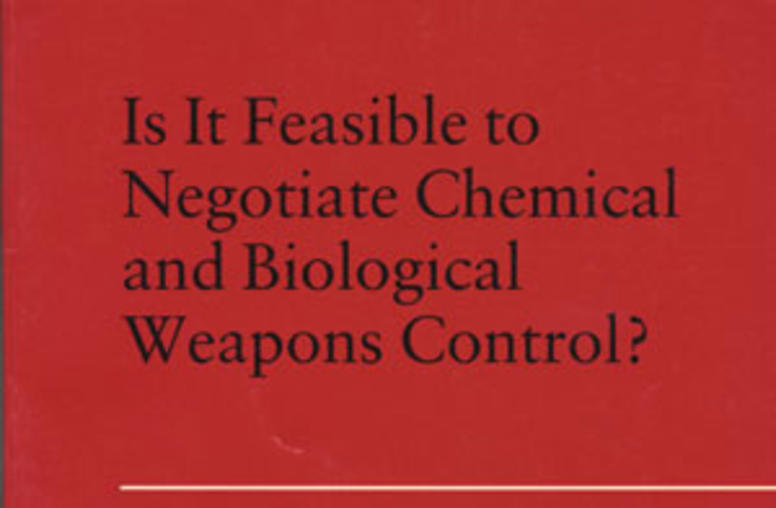
Is it Feasible to Negotiate Chemical and Biological Weapons Control?
A controversial proposal for the formation of an international authority that would monitor use of the "poor man's nuclear weapon" and assist countries under attack.
Security Sector Reform Working Group
The Security Sector Reform (SSR) Working Group convenes public meetings to discuss critical issues related to the reform of police and military forces and their supervising institutions in conflict-affected countries.
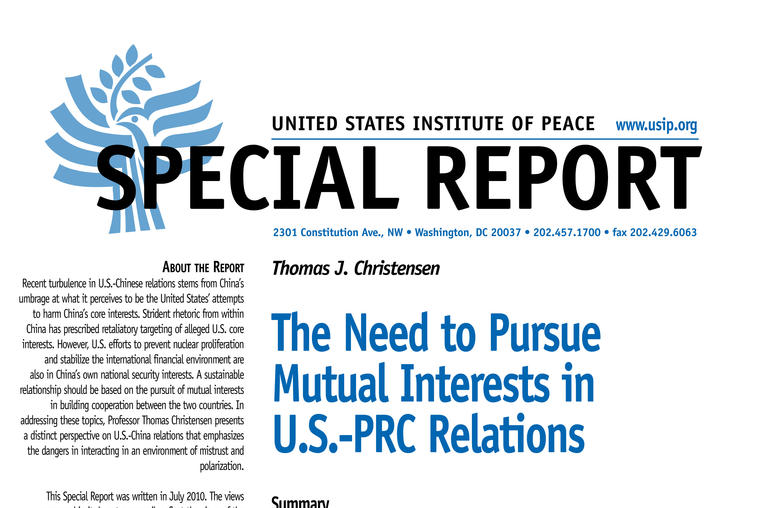
The Need to Pursue Mutual Interests in U.S.-PRC Relations
Recent turbulence in U.S.-Chinese relations stems from China’s umbrage at what it perceives to be the United States’ attempts to harm China’s core interests. Professor Thomas Christensen presents a distinct perspective on U.S.-China relations that emphasizes the dangers in interacting in an environment of mistrust and polarization.
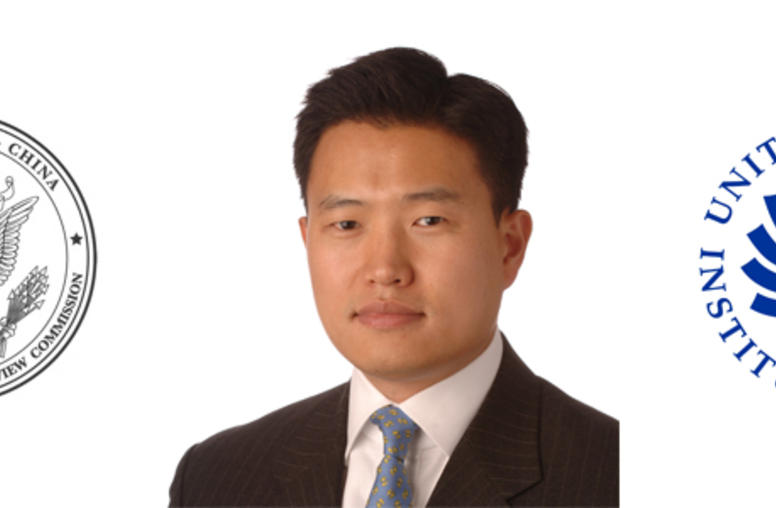
Testimony of John Park before the U.S.-China Economic and Security Review Commission
USIP's John Park testified before the U.S.-China Economic and Security Review Commission about the evolving roles of 'core interests' and 'mutual interests' in U.S.-China relations.
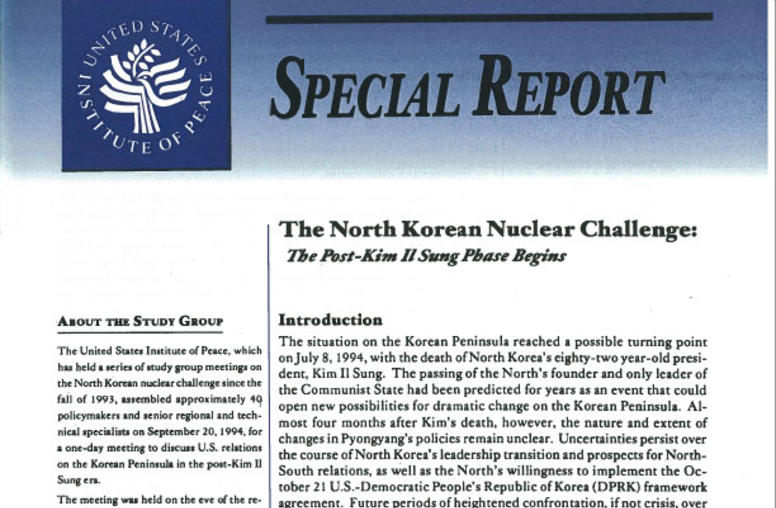
The North Korean Nuclear Challenge: The Post–Kim Il Sung Phase Begins
The situation on the Korean Peninsula reached a possible turning point on July 8, 1994, with the death of North Korea's eighty-two year-old president, Kim Il Sung. The passing of the North's founder and only leader of the Communist State had been predicted for years as an event that could open new possibilities for dramatic change on the Korean Peninsula. The United States, South Korea, and North Korea's other neighbors face significant challenges in determining policy adjustments that might...
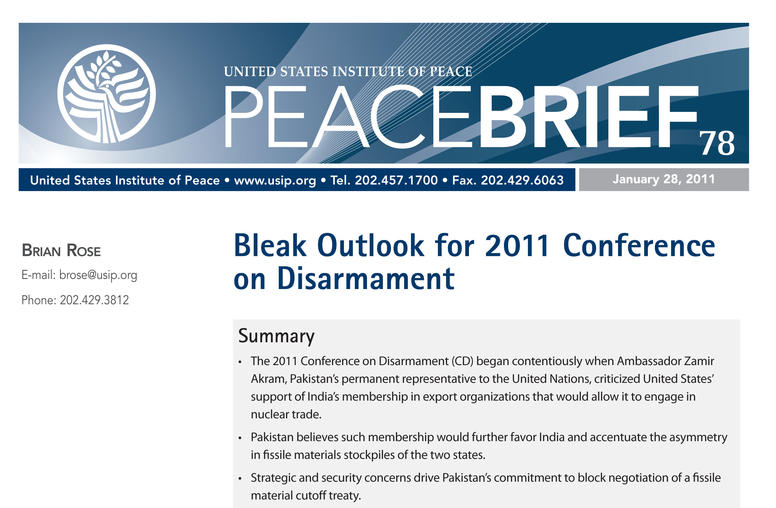
Bleak Outlook for 2011 Conference on Disarmament
The 2011 Conference on Disarmament began contentiously when Pakistan’s representative criticized U.S. support for full Indian membership in export control organizations that would allow it to engage in nuclear trade. This Peace Brief seeks to capture some of the areas of contention, including the Pakistani block of a fissile material cutoff treaty, and place them in the context of Pakistan’s larger strategic and security concerns vis-à-vis India.
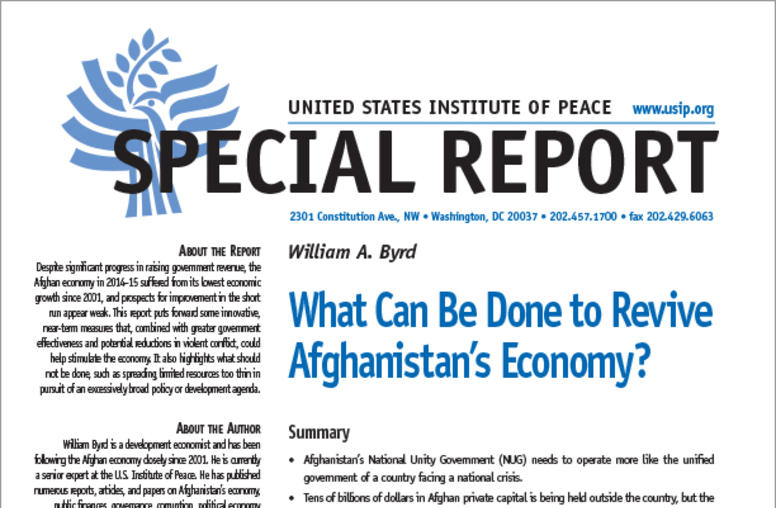
What Can Be Done to Revive Afghanistan’s Economy?
Reviving the Afghan economy during a time of intensifying violent conflict, declining external financial aid, and ongoing political uncertainty and dysfunction will be extremely challenging. But the country cannot wait for these entrenched problems to be addressed. While keeping expectations modest, this report proposes some targeted, near-term measures to increase confidence and stimulate the economy. Rather than engaging in politics as usual and following conventional policy prescriptions t...

UNSCR 1325 in the Middle East and North Africa: Women and Security
The United Nations Security Council passed Resolution 1325 fifteen years ago. The resolution addresses the disproportionate impact war has on women and reaffirms their important role in conflict management, conflict resolution, and sustainable peace processes. This report pulls from interviews conducted with academics, activists, government officials, and nongovernmental leaders in Egypt, Iraq, Israel, the Palestinian territories, and Tunisia. It examines the benefits and challenges of the re...
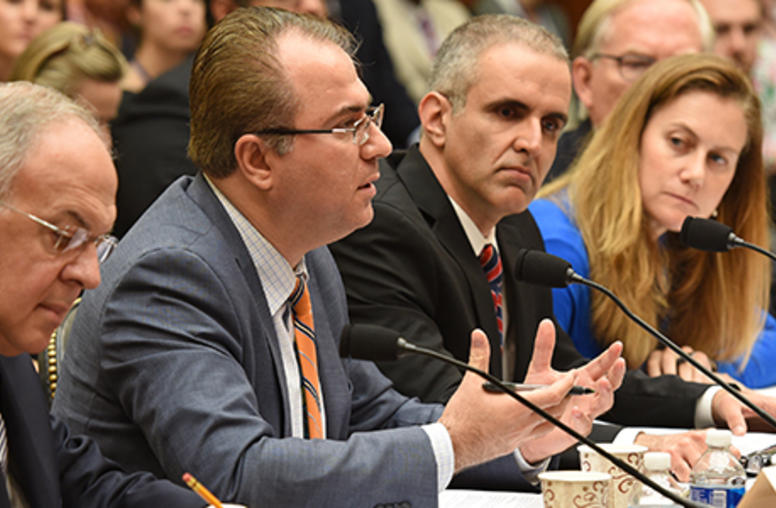
The ISIS Genocide Declaration: What Next?
Sarhang Hamasaeed, senior program officer for the Middle East programs at the U.S. Institute of Peace, testified before the House Foreign Affairs Subcommittee on Africa, Global Health, Global Human Rights and International Organizations.
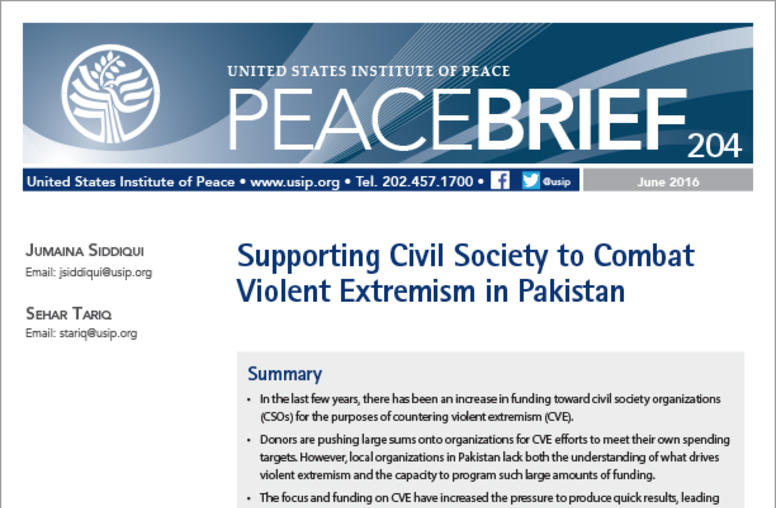
Supporting Civil Society to Combat Violent Extremism in Pakistan
In the past few years, there has been an increase in funding for civil society organizations for the goal of countering violent extremism (CVE). While donors are investing large sums for CVE efforts, in Pakistan, local organizations often lack the technical capacity to understand the nature of violent extremism as well as how to utilize such large amounts of money. This brief discusses the challenges to implementing CVE programs and provides recommendations for how stakeholders can overcome t...